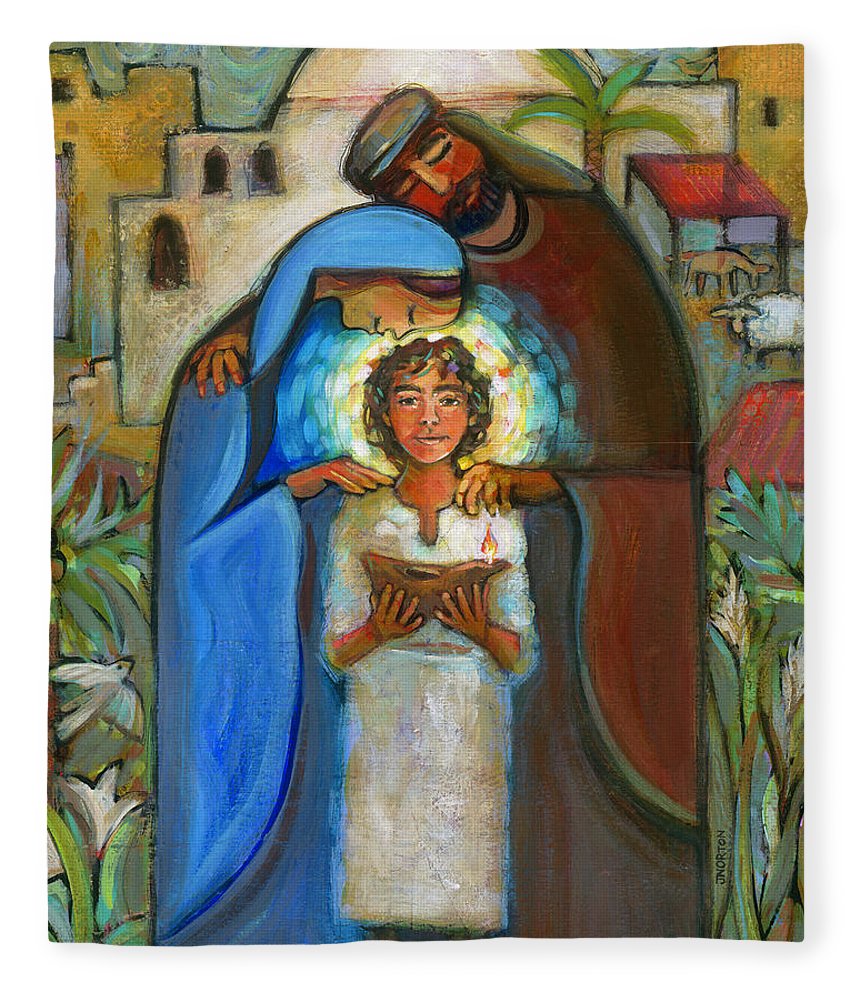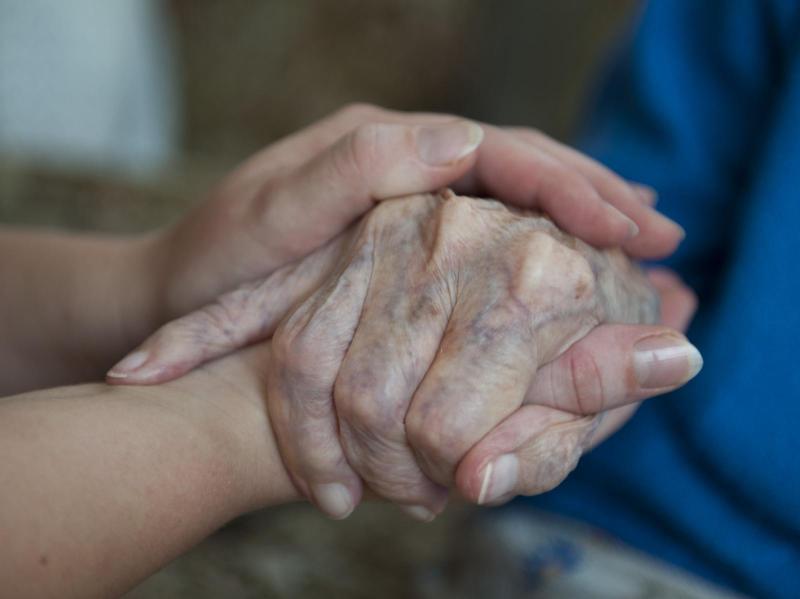By Reverend Roger Carr-Jones, Marriage & Family Life Coordinator, Diocese of Westminster
Family life can move from times of stability and security into moments of upheavl and uncertainty. At the birth of Jesus, for Mary and Joseph the arrival of the shepherds and the Magi must have acted as a moment of confirmation of their personal annunciations. Then, just as suddenly, life was up-ended, with Joseph being told in a dream to flee to Egypt. The life of the Holy Family involved discernment, which has three core principles: awareness, understanding and action. We see these themes in the Synodal Pathway' of ' See, Judge and Act'. Making regular time as a couple, or family to sit and listen to each other is transformative and grace-filled.
The impacts of the pandemic on our lives are many and different. We may feel that we are living on shifting sands and this has tested our faith, resolve and family life? Perhaps it has manifested itself as a ‘Covid-of-negativity’, which has crept into our consciousness, so that at times we misread others, especially those we love, or make poor decisions? This infection can of course happen at any point on our faith journey. It is not cured through inoculation. Instead, we need a regular vaccination through prayer, discernment and noticing where God is labouring in our life. It is all about making room for the Holy Spirit in our lives.
The term ‘discernment’, is central to Ignatian Spirituality. At first glance it might seem tricky, or we can get confused with a secular meaning, such as showing good taste. In the Ignatian context it is the art of prayerful decision-making using specific spiritual practices. It is about our being aware that God wants us to make good decisions, will help us to make those good decisions, and also being aware of the competing forces that routinely try to take us in other directions (James Martin SJ). The beginning of the New Year is the opportunity to review our relationship with God and by extension with those whom we have been given to love.
The theme of discernment lies at the heart of Pope Francis’ Apostolic Exhortation on Love in the Family, Amoris Laetitia (AL). In this the Year of Amoris Laetitia Family, there is much that we can take from this exhortation to cultivate our spiritual life and enhance our relationships: as an individual, as a couple and as a family in all its connotations.
In AL Pope Francis speaks eloquently about the spirituality of marriage and family life, of accompanying families in discernment, and supporting them to make decisions in conscience. This dynamic of discernment and conscience is captured in the phrase: 'We have been called to form consciences, not to replace them' (AL 37). The Holy Family led a life that was open to grace. That same grace is offered to us all.
As in the Spiritual Exercises, Pope Francis, like Ignatius, does not set out to provide a set of rules and regulations to rigidly follow, 'rather, what he gives the Church is a Gospel-inspired vision of what family life can be, a word of encouragement for those who are not yet there and above all another example of the discerning way of proceeding that he has modelled' (Nicholas Austin SJ, Thinking Faith 2016). Discernment for Pope Francis is a gift we must pray for and develop 'through prayer, reflection, reading and good counsel'.
Daily living comes with a mix of demands. These change as our life changes, but throughout we are presented with situations that require a decision. Family life gets tested and that was the same for the Holy Family. What must Mary and Joseph have felt when their son was missing on the way home from their annual visit to Jerusalem, and then his off-hand response when he was found! (See Lk 2:41-52).
Have we felt the pressure to make snap decisions in life, carried along with the tide and then discovered our error? Are there situations from our past, which we regret or things that we currently face, which we need to take into prayer for healing? Discernment, like any other skill, is developed through regular use, which also includes informing our conscience. We learn discernment through practice, rather than book knowledge. In the same way we might refer to a parenting book for advice, but we know we have to address the issues in real-time. This again is where the See, Judge, Act methodology can help.
We learn about parenting and family relationships through immersing ourselves in family life, and importantly, by being open to learning from our mistakes. In a similar vein, in Ignatian spirituality we learn to pray with scripture by immersing ourselves in it: we do not study it, helpful though this is.
What positives do we need to notice about our upbringing, parenting, or the times where we have acted as a parental figure to others?
In practicing the art of discernment, in time we will come to inhabit it. It is not a resource kept on the shelf; it is simply part of who we are becoming. It is good to recall that God encounters us individually, which means finding the right fit for us. We are bespoke pilgrims. The key is our being open to the Spirit in terms of what we need and live out our mission. What difference does it make when we take our whole being into prayer? 'In the discernment of spirits, we notice the interior movements of our hearts, which include our thoughts, feelings, desires, attractions and resistances' (Kevin O’Brien SJ, The Ignatian Adventure).
We are complex beings, which is often reflected by the challenges in life. These are not simply a source of worry, but of opportunities for grace: Again, with great candour the Holy Father says: 'The Lord’s presence dwells in real and concrete families, with all their daily troubles and struggles, joys and hopes. Living in a family makes it hard for us to feign or lie; we cannot hide behind a mask. If that authenticity is inspired by love, then the Lord reigns there' (AL 315). AL does not aim to project an ideal family leaving us dispirited. Instead, its teaching helps us to listen to our hearts and thereby listen to God.
Do you find it reassuring and liberating to know that, 'No family drops down from heaven perfectly formed; families need constantly to grow and mature in the ability to love' (AL 325)?
You might like to try using imaginative prayer to think about the early life of Jesus, the daily decisions his parents had to make and the challenges they faced. In doing this it will help us to recall that family life 'is made up of thousands of small but real gestures' (AL 315).
Discernment is not about self-reflection, or building up our ego: it is about leaving ourselves behind in order that we can approach the mystery of God. From this we can continue with our own unique mission, which for the greater part will be lived in a domestic setting.
Image: Jen Norton, Holy Family: Young Jesus as the Light




